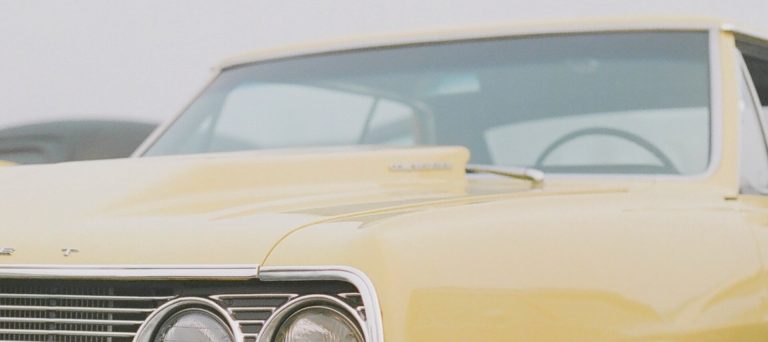Ah, cars… How we love them; almost as much as we love money and sinning.
Odd, isn’t it then, that the three loves are intertwined? Humanity in general loves money, and the Good Book tells us that the love of money (please note: it is not money in itself, but the love thereof) is the root of all evil.
It is pretty obvious that evil in turn is the root of all sinning, and we need a tidy sum of money to buy cars, so you can see how the correlation comes about.
Now, there is a tendency for some people to misunderstand a number of my arguments, so before you go grabbing your firebrands and pitchforks with an intent to run me out of town as a judgmental self-righteous phony who knows nothing about how people live, allow me to clear the air.
I am not saying that every motor vehicle owner is a cash-oriented hustler always on the lookout for an extra pfennig, nor am I saying that any hardworking individual seeking to improve his/her lot reads from the devil’s handbook (i.e. is intrinsically evil); what I am saying is there are those among us who resort to chicanery and less-than-honest means when going after their next mode of personal transportation.
As I closed last week, I said some of these methods are not exactly illegal, but they may involve bending the law to one’s benefit. Others are just outrightly against the law.
So, if you want a car, and my advice so far does not tickle your fancy, what other means are there at your disposal?
Here goes:
1 Auctions: Auctions are a good source of used or slightly used cars, sometimes at a throw-away price.
There is nothing wrong or evil about them, but there is a catch: they involve several individuals raising hands left and right, outbidding each other for the sake of ownership.
Sometimes, these bidding wars can be carried to unprecedented levels; levels that the aspiring buyer did not wish to reach financially. This is where some good ol’ corruption and/or cronyism/nepotism comes in handy.
Befriend, or at least grab the attention of, someone pertinent to the auction. If you have a relative there, even better. Before the day of the actual auction, you may have to grease a few palms to ensure the object of your desire never gets to the block, where some crazy guy with a lot of money is likely to make life difficult for you.
The grease ensures your car is not put up for bidding, and allows you to buy it from the relevant authority at the least possible price (called the reserve price, and is the bare minimum cost of the lot under auction below which the auctioneers cannot go).
The result? A “new” car that has been had for next to nothing (cars under auction don’t go for much to begin with), and no auctioneer’s gavel to bang down on your bank balance.
But you have to know where to look. If the auctioneers are a private firm, or if the auctioning entity is the UN or a privately owned company, don’t bother.
Go for parastatals or government-run corporations (I hope this does not get me killed). Bureaucracy still runs deep and will provide the necessary cover for your subterfuge, and it is unlikely that anyone will ask questions.
For some other… er… auctioning entities (I dare not mention examples, you will have to make educated guesses), you can even buy the opportunity to “shop” before the vehicles are listed for auctioning.
These are usually vehicles whose owners are either afraid to or are no longer able to claim them, courtesy of being indisposed in one way or another.
2 The Port: This is similar to the auctions, but it involves trawling around the port area in search of unclaimed vehicles or those ineligible for registration and are due for destruction (thanks a lot, Mr Michuki. Now I have to crush my car).
Again, talking to the right people will open doors for you, but this time round you will inherit problems. If the car is ineligible for registration to start with, it is now up to you, and not the original owner, to register it. If the vehicle was unclaimed, what happens when the original owner tracks it down?
There is the usual grace period for collecting vehicles at the port, after which the importer is assumed to have forfeited his rights to the vehicle in question, but if the fellow makes a noise, he brings attention to you and then what?
This is beginning to look expensive and a wee bit troublesome.
3 Uganda: This one involves either those who have imported ineligible cars (maybe older than eight years, which makes them cheaper than a local example of similar vintage), or you have acquired one from Step 2 above.
There is nothing illegal about this technique, only avoid it if you have a conscience. You are not breaking the law; you are bending it to your advantage.
Take your ineligible car to Uganda and register it there, or even better, buy one from there. Then bring it back in, with the Ugandan registration, and get a vehicle permit. The interesting part is what to do when the permit expires: get another one. And another one, and keep renewing it for as long as your patience holds.
Someone told me that a weekly permit is free of charge. I don’t know how true this is, but if it is, this plan could work beautifully for those living in Western Kenya, very near the border. Even if it isn’t, you can still have your cake and drive it, at less cost initially, but long-term ownership could begin to look more expensive overall.
Of course, this is a blatant exploitation of a hitherto unseen loophole in the legal system, but at least you will not land in jail if they ever find you out.
4 Help the needy: How’s that again? Simple: start an NGO, or even a church. Again, the good-hearted need not apply, because it is not philanthropy that will drive you to do this.
It is the fact that, like Jesus, you will help orphans and the less fortunate, and you think that a Nissan Patrol is a good enough car to carry them around in, only it isn’t. You have always wanted to own an imported Nissan Patrol and you didn’t know how, until now.
These vehicles are tax-exempt (no, not Nissan Patrols, but church and NGO transportation). Donors can even do you one better and buy one for you, and you still will not be required to pay the import duty.
For the particularly nasty types, it will warm the cockles of their hearts to know that all the costs you avoided initially will be borne by the person you sell the car to, if you ever sell it. Again, no laws broken here.
5 The money and the box: There is this Sheng phrase that means “to have somebody under your power”: kuwekana box. Befriend an expatriate, not for the sake of companionship, or networking, but because when they leave and sell off their property at throw-away prices, you will be first in consideration.
People leaving the country (not just foreigners, even locals) are an open secret in the second-hand car market: they sell cheaply, have no time for negotiation but are desperate to sell and more often than not the vehicles are as good as new.
Of course, this trick only works if they have a car you want and you have some money for the quick buy. Or if they even leave in the first place.




